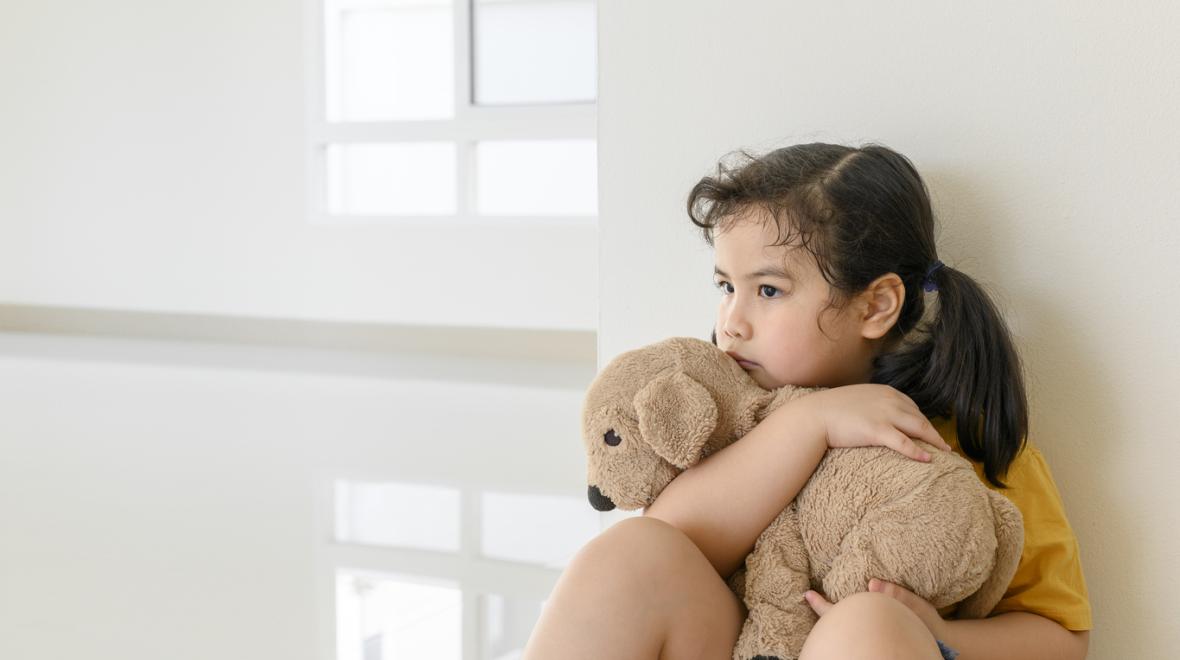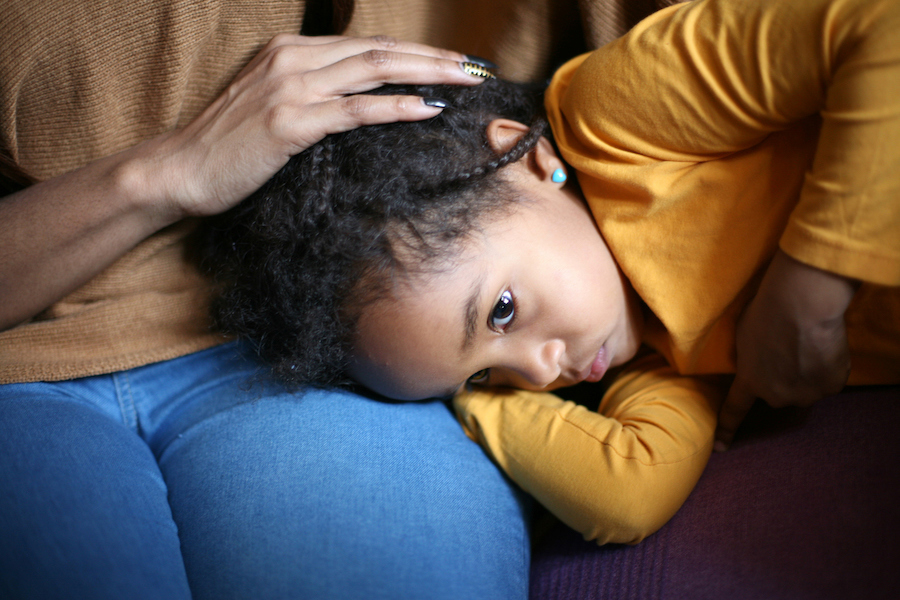
Photo:
iStock
Anxiety is a normal and rather common emotion in children.
Anxiety may be caused by family events such as frequent home or school changes, an unstable family environment, death or illness in the family, or a stressful school environment. Science says that anxious parents are more likely to raise anxious children. That said, some children are born worriers, meaning that they are more prone to worry than other kids.
According to one study, anxiety affects nearly 1 in 12 children and 1 in 4 adolescents. While some amount of anxiety is normal, this emotion can affect how children learn and how they interact with the world around them. Some studies suggest that anxiety leads to poorer memory and poorer performance.
Stress and anxiety are touching more children today than ever before, but anxiety in children is great at camouflaging itself. This means that an anxious child may display behavior that is easily mistaken for something else: misbehavior, aggression or anger. Also, young children rarely have the words to describe their anxiety, meaning that it may be easily overlooked.
Subtle signs of anxiety in kids
While it is easy to recognize some signs of anxiety in kids, such as separation anxiety or teary and clingy behavior, other symptoms of anxiety are more difficult to recognize. Here are 10 signs of anxiety that are often mistaken for something else.
- Distraction. Anxiety makes your child focus on whatever it is that is making them anxious rather than on what is going on around them. This may lead to behavior such as lack of focus and concentration, or fidgeting.
- Situation avoidance. Situation avoidance is a common strategy used by anxious children to avoid situations that make them uncomfortable. This could be reflected in your child avoiding responding in class or speaking in front of their classmates. It may also be reflected in your child wanting to skip school or avoid participating in certain activities.
- Playing the class clown. Many children who “act up” in school often do so to distract themselves from uncomfortable feelings. Playing the class clown is their way of dealing with difficult emotions that they are unable to manage.
- Aggressive behavior. There is a relationship between anxiety and aggression. Your child may become angry if they are unable to understand and communicate their feelings. Anxiety is often sparked by underlying fears, and a child’s anxiety may turn into anger in an attempt to help them feel like they are in control. Anger can therefore be an unconscious expression of your child’s anxiety. Getting angry quickly or out of control behavior may also be a sign of their inability to handle their feelings of anxiety.
- Poor eating habits. Your child’s anxiety may be reflected in poor eating habits. This is especially true if there have been recent changes in these habits.
- Poor memory. It makes sense that an anxious child will find it more difficult to remember information. Anxiety distracts them and makes them feel uncomfortable, meaning that it is harder for them to pay attention to new information. This could also explain differences in grades — if your child is more anxious in a particular class, their grades and behavior in that class are likely to be different than in the other classes.
- Poor sleeping habits. One of the least known signs of anxiety is poor sleeping habits. This may be reflected in bedtime battles, waking up frequently in the middle of the night and more frequent nightmares. An anxious child could also begin wetting the bed.
- Negativity. Your child’s constant negative thoughts may be a sign of anxiety. Remember that anxiety and fear are closely linked, meaning that your child’s fears may lead to his or her anxiety.
- Frequent urination. Frequent urination can be a sign of your child’s anxiety.
- Illness. Anxiety is such a powerful emotion that it can manifest in the body in different ways. Some of the physical symptoms of anxiety include tummy aches, nausea, headaches and shortness of breath.

How to help your anxious child
Anxiety is an uncomfortable feeling for adults, so you can imagine how uncomfortable it can feel for children. Many children struggle with anxiety because they have not yet learned how to manage strong emotions. Here are three things you can do if your child is having problems with anxiety.
- Talk to them about their anxiety. Young children need to know that everyone feels the same emotions as they do. Reassuring them that their emotions are normal and validating their feelings is important if you want to help them learn to express their anxiety more effectively.
- Talk to them about your own anxiety. Modeling positive ways of dealing with anxiety will help teach your child how to manage their own anxiety. This means talking about situations that make you anxious and how you deal with them.
- Foster your child’s emotional intelligence. Teaching your child about emotions means helping them identify different emotions, helping them understand how those emotions feel in the body and giving them coping strategies that they can use in the face of emotion-provoking situations.
Many childhood anxieties disappear when your child grows older, and even most children prone to anxiety learn to deal with this emotion more effectively. That said, anxiety in some children may require the intervention of a specialist. Please seek professional help if your child’s anxiety seems to be getting worse, if it is ruining their school and social life, or if you feel unable to help your child by yourself.
Editor’s note: This article was originally published in December 2021. It was updated by ParentMap’s editorial team in January 2025 with updated research and new information for parents.











